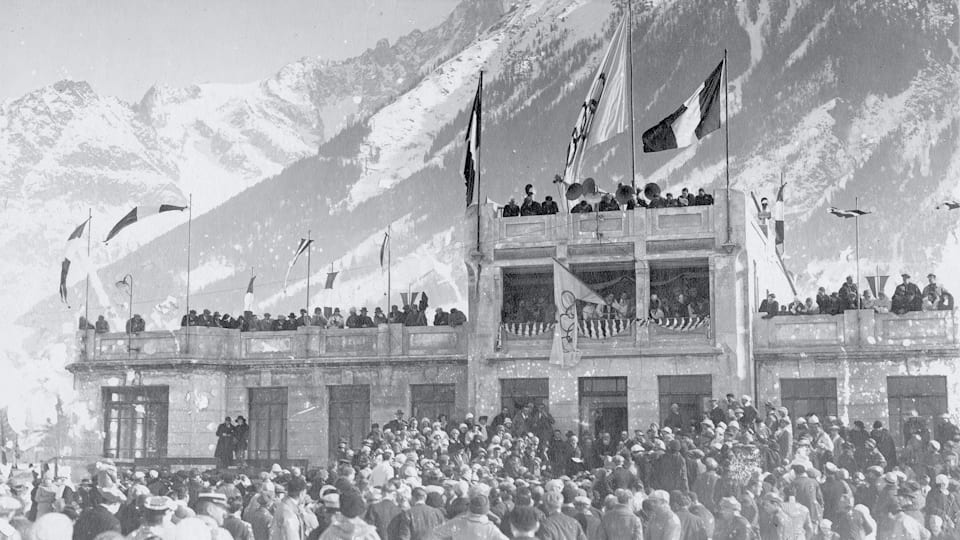Winter Games given stamp of approval
During the Closing Ceremony on 5 February 1924, IOC President Pierre de Coubertin took to the stage to deliver a memorable speech. “Winter sports have about them a certain purity, and that is why I was inclined to support and nurture them in this Olympic environment,” he stated.

“These Olympic sports can help us perpetuate idealised sport; we must take care to keep them from dishonour and corruption. From a practical point of view, there are certainly great difficulties involved in achieving this goal, but the rewards are great if sport is kept honest and the recent unprecedented success of these Games gives us hope. We are grateful to all those who helped to make these Games such a triumph,” he concluded.
Meanwhile, in the official report for the 1924 Games, former Olympian Frantz Reichel wrote: “The success of the Chamonix Games had a significant impact on the public, as well as on the nations that took part. Although insufficiently informed at first, it seems, people were quickly enthralled by the scope and variety of the event. They rushed here from all over the region – and then from Paris and neighbouring cities – in their thousands, all well and truly won over by the wholesome yet harsh beauty of winter sports, and ready to excitedly witness great feats from the Olympic athletes.
“And there were many feats to get excited about, be it a blistering start from Jewtraw or a powerful charge by Skutnabb, or an amazing descent on the bobsleigh track that La Frégeolière helped to build, or a 58-metre ski jump by Thams, or a virtuoso display from the Canadian ice hockey team, who, balancing on blades of steel, put on a show of the utmost elegance and grandeur.”
The festival of sport held in Chamonix in 1924 proved to be a tremendous step forward for winter disciplines, providing a huge boost to their international standing. The Nordic nations, which had initially been reticent about the creation of the Olympic Winter Games, could no longer find any tangible reasons to continue to oppose them.
As a result, the IOC decided at its Prague congress in May 1925 to retroactively re-designate the “international week of winter sport” in Chamonix as “the first Olympic Winter Games”, and set in motion a four-year cycle that would include both the Summer and Winter Games. The Olympic Winter Games Charter was adopted during the congress, where it was also decided that hosting duties would, wherever possible, be granted to the host nation of the Olympic Summer Games.
